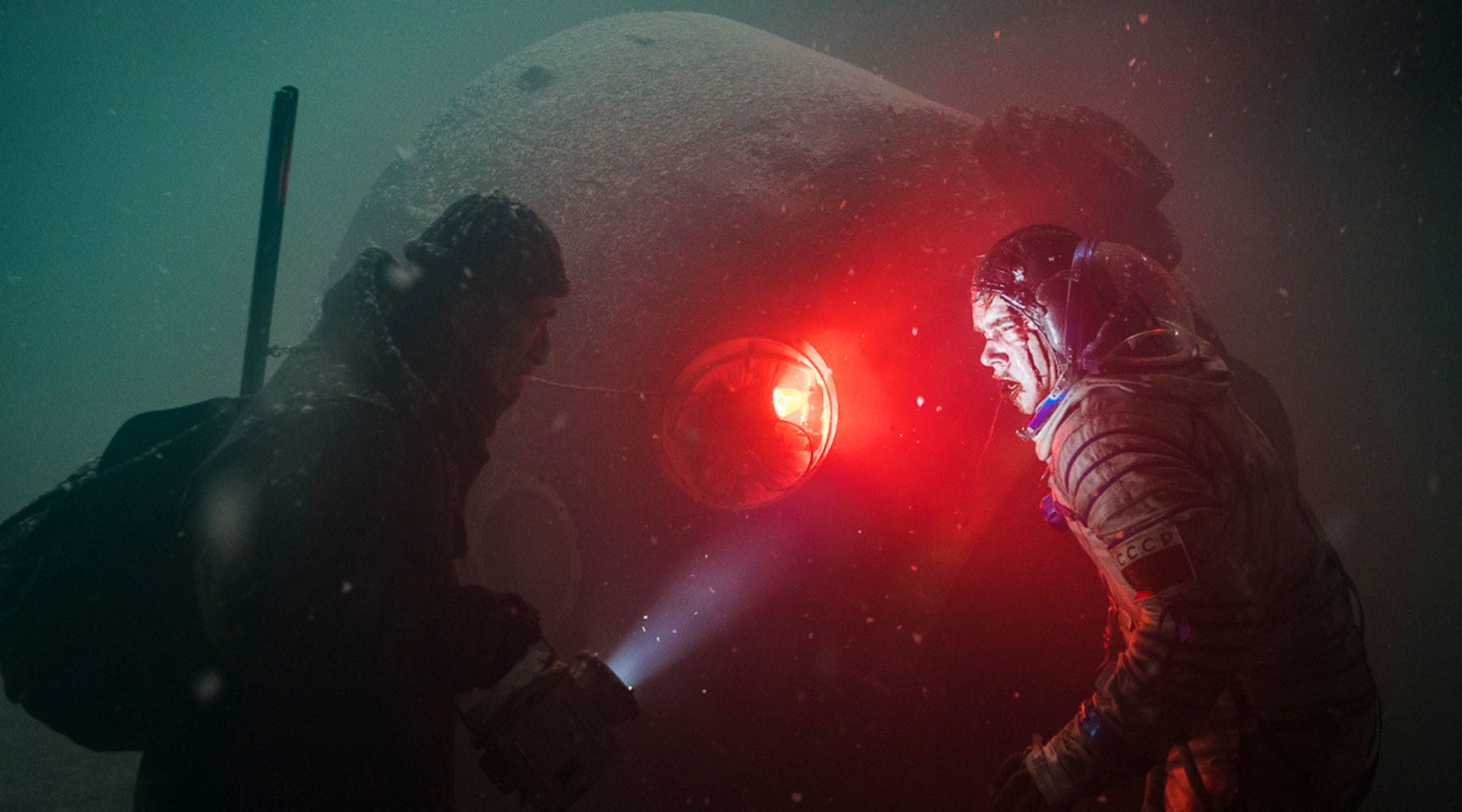April 23, the network premiere of the film "Satellite". In conditions of self-isolation, the tape did not start on the screens of movie theaters, but on the online platforms more.tv, Wink and ivi.
"Sputnik" was the full-length debut in the feature film directed by Yegor Abramenko. In the new film, the director developed his own achievements from the short film Passenger with Arthur Smolyaninov.
The action of a full meter takes place in 1983. Two astronauts are returning from a mission to Earth. One of them dies under unclear circumstances, and the second - Konstantin Veshnyakov performed by Peter Fedorov - gets injured upon landing; in addition, the most important episode of the flight is erased from his memory. The hero is placed for rehabilitation in a closed research institute in Kazakhstan.
To help the astronaut cope with amnesia, the head of the institution, Colonel Semiradov (Fedor Bondarchuk), brings Tatyana Klimova (Oksana Akinshina) from Moscow, a neurophysiologist. She is known for her risky working methods.
It soon becomes clear that first of all it is necessary not to restore the memory of Vishnyakov, but to save him from an alien "parasite". A certain creature lives in the astronaut’s body, which crawls out for a walk at night and eats cortisol, the stress hormone.
The astronaut and the alien established a certain connection, thanks to which Veshnyakov quickly recovered from the injury, and the alien reads his emotions. But the main difficulty is that these two can no longer exist without each other.
- © Shot from the movie "Satellite" (2020)
In many ways, the secondary plot is recognizable from the first minutes: it seems that the scriptwriters Oleg Malovichko and Andrei Zolotarev simply brought together the elements of most sensational films about space. In one tape there were motifs of the “Wives of an astronaut” (heroes bring creatures of a different race from outer space), “Alive” with a growing, shape-changing and very dangerous alien organism, and, of course, the classics of the “Alien” genre.
However, Akinshina’s character is more like the heroine of the film “Arrival”, which tried to find a common language with aliens, rather than the second Ripley. This is a sensual, feminine image: unlike warlike men, Klimova prefers to solve problems peacefully.
In this sense, her main antipode is the character of Fyodor Bondarchuk. However, as the filmmaker rightly noted in one of the interviews, in this image he had something to play. Semiradov is a soldier who knows how to sacrifice people, but in his own way is a whole person with understandable ideals.
Bondarchuk also acted as a producer of the picture. Abramenko participated in the filming of “Attraction” as the director of the second film crew and it was then that he shared with his colleague the idea of “Sputnik”.
- © Shot from the movie "Satellite" (2020)
Abramenko calls his work "a realistic fantasy on what might happen." However, by what principle the picture is divided into fantastic and realistic components, it is unclear.
The frame contains a lot of artifacts from the 1980s, black “Volga” ride around, and the heroes sing the Alla Pugacheva song “Million Scarlet Roses” released in 1982. At the same time, for example, the military uniform on the characters is fictitious, and the clothing as a whole does not quite correspond to the period depicted.
The question arises: why, in principle, a reference to time is needed if it practically does not affect the surroundings or the plot? In principle, secret laboratories with incomprehensible scientists and cynical authorities could exist in any other period, including the present.
"Sputnik" - the tape is visually gloomy. The only bright spot is a red tumbler toy, a toy popular among several generations of Soviet children. The rest of the film is dominated by the dull colors of gray-brown. For the thriller genre, the gloomy video sequence is quite natural, but it still looks unusual. It is interesting that earlier Sputnik was declared as a horror, but now it is presented as a thriller.
The bright side of the film is, first of all, the personal growth of the heroes. Characters evolve with the development of action, and their actions as a whole logically (with small assumptions) follow from the history of each. The denouement of history with a good plot twist looks curious.
But the most valuable thing in Sputnik is the humanistic message expressed in the idea that love and compassion can surpass even “the ability to be afraid of quality” (as the scientist from the heroes of the film notes, people are champions in this “sport”).

